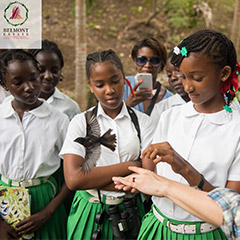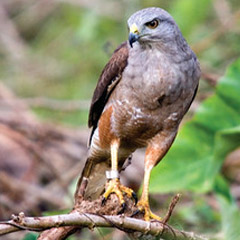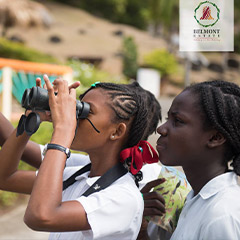The island of Hispaniola (split between Haiti and the Dominican Republic) hosts over 300 bird species for at least part of their annual cycle and boasts 31 endemic bird species – birds found nowhere else in the world. These endemic species include several IUCN Endangered or Critically Endangered land birds, including the bay-breasted cuckoo, Hispaniolan crossbill, La Selle thrush, Ridgway’s hawk, and the white-fronted quail-dove, all of which occur mainly in the Dominican Republic.
Hispaniola also serves as a stopover or wintering location for many migratory birds shared with the Boston metro area, including Massachusetts state-listed birds like roseate and least tern, grasshopper sparrow, and blackpoll warbler. Many migratory songbirds that make annual stopovers in Franklin Park and are counted on the Franklin Park Biodiversity Survey winter in Hispaniola or depend on it as a stopover site.
A major goal of this program is establishing a central bird banding authority and database for the entire Caribbean, and developing a group of skilled and trained local bird surveyors with repeatable survey routes and sites. BirdsCaribbean is also planning to construct more MOTUS towers (which can automatically identify tagged birds) on the islands, which will complement the existing MOTUS tower funded by ZNE that operates here in Massachusetts.
The program will develop a skilled base of local Caribbean birders and ornithologists by training them in bird identification, standard survey methodology, and bird banding. Working with local partners, BirdsCaribbean will visit schools and provide banding demonstrations to teach local youth about endemic and endangered resident and migratory birds. These activities, along with the distribution of educational materials, not only will help to reduce hunting pressure including for the caged bird trade, but also connect children with nature and show them the importance of conserving their local birds.
Photos courtesy of Birds Caribbean and Belmont Estate





